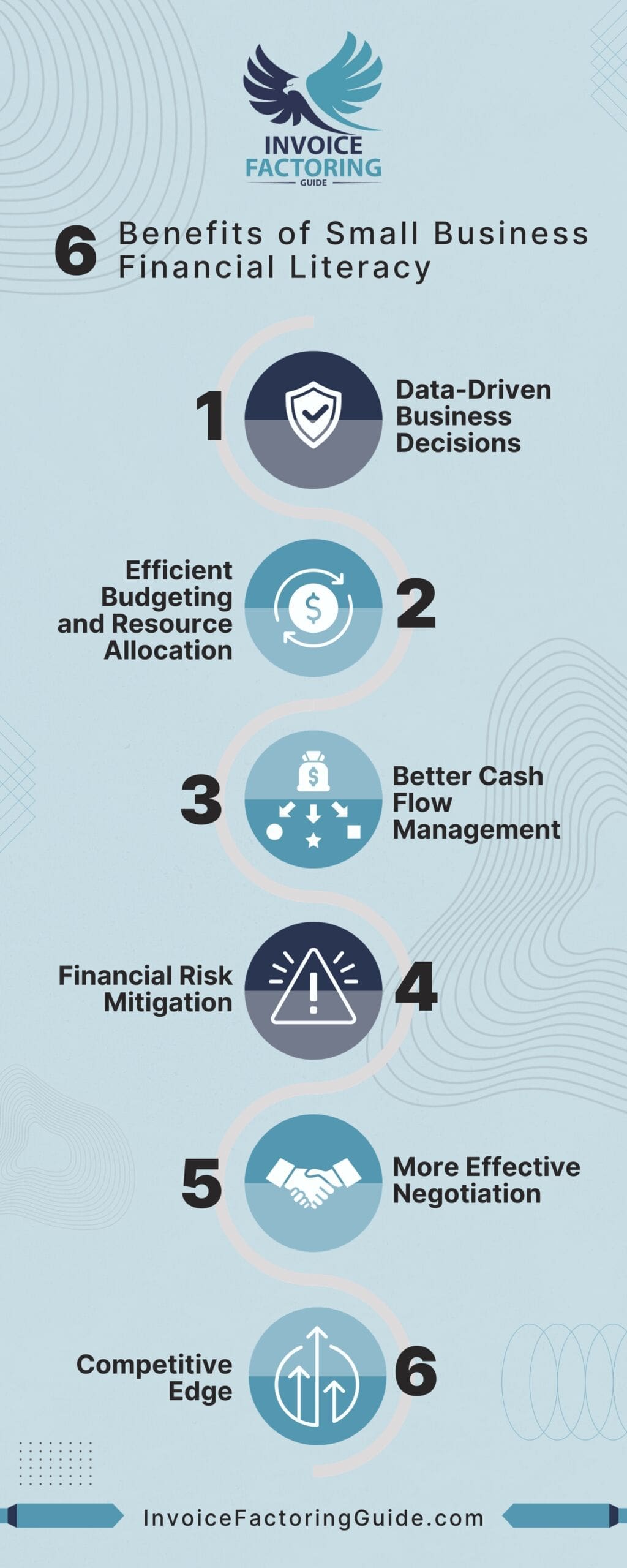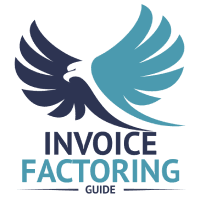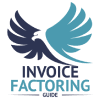
Small business financial literacy doesn’t get much press, but it’s one of the most beneficial things you can possess. On this page, we’ll walk you through what it entails, its benefits, and ways small businesses can improve their financial literacy so you can build a stronger future for yourself and your company.
What is Financial Literacy?
Basic financial literacy involves knowing how to:
- Earn
- Spend
- Save
- Borrow
- Protect your money
Why is Basic Financial Literacy Important?
Without these abilities, people are more likely to amass debt they can’t pay off, which leads to adverse outcomes such as bad credit, bankruptcy, and foreclosure.
Unfortunately, the number of Americans who score 60 percent or greater on a basic financial literacy test has been dropping steadily since 2009, according to the Financial Industry Regulatory Authority (FINRA). Less than one-third of Americans are now considered financially literate as a result, FINRA studies show.
What is Financial Business Literacy?
Business financial literacy is similar but also involves things like:
- Managing cash flow
- Analyzing financial statements
- Handling business taxes
Why is Financial Literacy Important in Business?
While small business owners fare better than the general population regarding financial literacy, more than half still consider themselves financially illiterate, according to Intuit.
6 Undeniable Benefits of Small Business Financial Literacy
Those with financial acumen produce better outcomes for themselves and their businesses in many ways.
1. Data-Driven Business Decisions
Those with financial literacy in business are familiar with their numbers and leverage them like any other tool. They’re more likely to turn to their numbers when making decisions, so their decisions are more financially sound and produce better results.
2. Efficient Budgeting and Resource Allocation
The greater your financial literacy, the easier it is to create budgets and allocate resources in a way that boosts business growth and ensures all departments have their needs met.
3. Better Cash Flow Management
Four in five small business failures are tied to cash flow issues, according to the National Federation of Independent Business (NFIB). When you’re on top of your cash flow and make good predictions, your business is more likely to survive cash flow shortfalls that others won’t.
4. Financial Risk Mitigation
Risk mitigation often goes hand-in-hand with cash flow management. As someone with small business financial literacy, you’re far more likely to catch a cash flow shortfall before it actually hits. This allows you to be proactive. You may reduce spending or find a cost-effective way to boost cash flow rather than running short or waiting until your only option is a high-interest loan. You’re also more likely to have backup plans, so your business can bounce back from emergencies and unexpected setbacks more easily.
5. More Effective Negotiation
Financially literate people use data when negotiating rather than relying on emotion and opinion. This can make it easier to negotiate better terms with customers, vendors, and anyone else you do business with.
6. Competitive Edge
Those with business and financial literacy have a significant competitive advantage. You can weather hardships easier, seize opportunities, and grow your business while the competition is still struggling to cover payroll and keep its doors open.
How to Improve Your Small Business Financial Literacy
When trying to improve financial literacy, small business owners and leaders have a wealth of options. We’ll cover a few areas to address that can help you fill in any knowledge gaps you may have below.
Understand Your Financial Statements
Develop familiarity with key financial statements, including:
- Cash flow statement
- Balance sheet
- Profit and loss statement
Know Your Financial KPIs
If you’re using accounting software, you should be able to gather financial KPIs from it without having to perform any calculations on your own. A few KPIs to familiarize yourself with include:
- Cash flow forecast
- Gross profit margin
- Net profit margin
Read More
More than one-third of small business owners don’t follow financial news, according to Intuit surveys. Allocate a little time each day to catch up on the latest info. Books, blogs, podcasts, and other mediums can be excellent sources of information, too. The important thing is to fit it into your day in a way that works for you.
Be Able to Work Out ROI
Return on investment (ROI) comes into play in virtually every major business decision, whether you’re considering hiring new team members, investing in tools, or expanding your marketing. It’s easy to make intelligent business decisions when you can calculate the ROI of any initiative.
Understand Cash Flow
Again, cash flow, not a lack of profit, causes issues for most small businesses. Consider different scenarios, such as seasonal shifts and changes in customer demand, and consider how those things impact your working capital.
Create a Budget
Half of all businesses don’t create a documented budget, according to Clutch research. This is a crucial step because it’s like setting an endpoint before you take a trip. You can’t know where you’re going unless you choose a destination and plot how you’ll get there. More importantly, most businesses that create a written budget stick to it. That means you’re far more likely to reach your financial goals by creating one.
Use Debt Properly
Not all debt is bad. Certain types, like mortgages, can boost your credit score. Even a credit card can be good for your credit score, make it easier to track expenses, and allow your business to accrue points or other rewards. However, you must pay off the balance in full each month to make this strategy work.
Debt can also be a positive thing if you’re getting ROI from it. For instance, borrowing money to purchase equipment that allows you to accept more work can also be beneficial.
The problem is that many small businesses don’t get ROI from their debt. Instead, they accrue debt to cover overhead or accept poor terms that make it difficult to pay the debt off. If you find yourself wanting to take on a loan, consider whether a debt-free funding solution like invoice factoring might be better.
Have Financial Systems That Work for You
The less you have to do manually, the more likely you are to stick to your goals. Consider using automation or outsourcing for things like:
- Invoice preparation
- Collections
- Recurring transfers into your savings account
- Managing your accounts payable
- Filing taxes
Get Your Credit Report
Pull your business credit reports from the major bureaus. Review your scores and the details on each report. Contest any inaccuracies and look for ways to boost your score. For instance, Dun & Bradstreet lets anyone you have financial transactions with file reports that indicate you’re an excellent payer. Your trusted vendors can help boost your score without you having to do extra work.
Consult with Financial Experts
Accountants, tax professionals, business attorneys, and business funding specialists can all help with different needs. If you have questions or don’t have the time to devote to your business finances, contact a pro.
Strengthen Your Business Finances with Invoice Factoring
Invoice factoring accelerates payment on your B2B invoices so your business can get the cash it needs without taking out a loan. Most businesses qualify, and you can use the cash in whatever way makes the most sense for your business. Request a complimentary factoring quote to get started.

About Invoice Factoring Guide
Related Articles
Get an instant funding estimate
Results are estimates based on the calculated rate and the total invoice amount provided.
Actual rates may vary.
Request a Factoring Rate Quote
PREFER TO TALK? Call us at 1-844-887-0300










